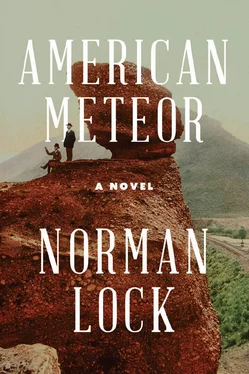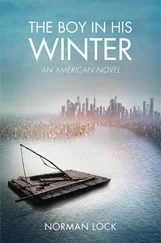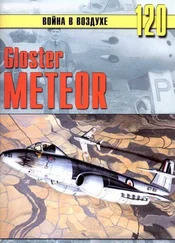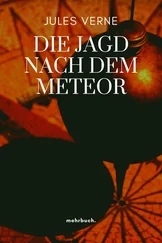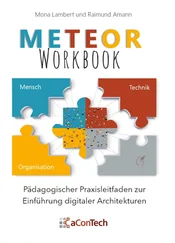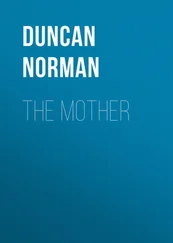“Are there cows in China?” I’d asked, betraying once more my ignorance of the wider world.
He smiled tolerantly. “Yes, but we do not drink so much milk as you. I never do; it disagrees with me.”
In the morning, I went to the infirmary to talk to the company doctor.
“I want to ask you about Chen Shi,” I said.
“Who is Chen Shi?”
“The Chinese tailor who died of the trembles.”
“Go on,” he said, hooking his ankles around the legs of the stool. The black hairs on his legs poked through his checkered socks.
“Chen didn’t drink milk,” I told him. “It didn’t agree with him.”
“There’re a hundred ways to die,” he said, with a shrug that looked like helplessness. He glanced at a sickbed where a man was pledged to one of them. “He could’ve been bitten by a rattler. Or maybe someone put white snakeroot or arsenic in his tea. He was Chinese; he was bound to have enemies.”
Like a German tailor, I thought. Or the quartermaster, also German. History will show you can’t trust a stinking sauerkraut.
The infirmary smelled like the Armory Square Hospital, where my fiction had been hatched, and I was itching to leave. There was nothing I could do for Chen. I wasn’t about to demand an inquest or to pursue the poisoner. I’m no Auguste Dupin.
“Do you know where Chen’s buried?” I asked the doctor, who had unhooked his ankles from the stool and was listening to the dying man’s chest with a stethoscope. I considered the instrument superfluous. I could hear the croup and rattle of pneumonia from across the room.
“In the ‘Chinese cemetery’ behind the train shed. Look for fresh-turned earth.”
I took Jericho, determined to play taps over Chen’s grave. I could be a vain and pompous ass in those days. There were only a few graves; most of the Chinese workers died in California and Nevada, dynamiting through the Sierras — blown to bits or buried beneath tons of American rock. A sad ending for those who’d dreamed, once, of gold ingots. Each grave had a cross for decoration. Was it ignorance or malice to have buried them like Methodists? Or did a high-minded evangelist with a shovel intend to convert the misbegotten heathen when they could no longer object? I knelt — it might’ve been the first time in history that a white man had knelt before a Chinaman, quick or dead. Not knowing any Chinese prayers, I said a Catholic grace: “We give Thee thanks, Almighty God, for all Thy benefits, and for the poor souls of the faithful departed; through the mercy of God, may they rest in peace. Amen.” I crossed myself, and then I blew taps. I couldn’t have done better if it were Abraham Lincoln himself lying in the ground before me. I was so moved that tears started up in my eye. Seized by a fit of generosity, I took off my medal and laid it at the foot of the cross. I brushed the loose dirt from my white-capped knees and left the corpses to go about their ghastly business. I hadn’t walked fifty yards when I changed my mind and went back for my medal. Who knew? I might need it yet.
I never found a man of any race to replace Chen— excepting you. You’ve been decent and a friend. On Sunday afternoons, Chen and I would walk the length and breadth of Omaha, although, in 1866, there was nothing about it you’d call picturesque. Omaha was a machine for slaughtering, packing, and shipping cattle. For all its monotony and stink, the town had its share of amusements — drinking holes and whorehouses, naturally, but I’d have been embarrassed to be seen in either place with Chen. What I mean is, I’d have been ashamed of myself. He had more of a civilizing effect on me than all the high-and-mighty, holier-than-thou con men I’d known in my wanderings. China has an ancient civilization. It was bound to have seeped into Chen at birth and to have changed me a little during the time I was steeped in him, so to speak.
He tended to spice his remarks with epigrams. One I remember was “Stars that outshine the rest are the first to disappear.” I don’t know if it was Confucius’s saying or Chen’s own. Product of a self-effacing race, he disapproved of my inclination to show off, which he attributed to shallowness and insecurity. I was hardly more than a boy! He thought it a dangerous folly to wear a snow-white uniform in a wilderness peopled by the Irish and the Indians. Chen’s gift was to fit himself to circumstances. I’d advocate it, if his life hadn’t been cut short.
With nothing to do anymore in my idle hours, I undertook my education. I wish I could tell you that I had Chen’s example in mind. But the truth is, I became an avid reader by chance. I was searching the depot warehouse for a case of scotch that Durant had ordered from New York, when I found a crate of books intended, by some eastern philanthropic society, for Omaha’s circulating library. A library, circulating or otherwise, had not yet been thought of for a town consisting mostly of illiterate Irishmen, foreigners, and cowboys herding steers into cattle pens by waving their Boss of the Plains hats and making their own version of Whitman’s “barbaric yawp.” I gave a coolie two bits to haul the crate to the tool car hitched behind Durant’s traveling boardroom, where I had my quarters; and in the long evenings when I wasn’t licking boots and kissing backsides, I read. In the three and a half years remaining to me as Durant’s Puppy, I read The Scarlet Letter, Silas Marner, The Autobiography of Benjamin Franklin, Pride and Prejudice, Gulliver’s Travels, The Marble Faun, Moby-Dick, Knickerbocker’s History of New York, The Red Rover, David Copperfield, Uncle Tom’s Cabin, The Woman in White, Adam Bede, The Age of Fable, Bleak House , illustrated by Phiz, The Origin of Species , which could have found its way into the crate only by chance or spitefulness, and The Diary of a Superfluous Man , whose title spoke to the situation of a boy no more central to the great events in which he found himself than a gnat in the halls of Congress. I had fallen in my own estimation since leaving the army, but I’d be sitting in the catbird seat once again.
With no formal education and little experience in reading (beyond Durant’s private papers, which I would pull from his briefcase and peruse), I could never have wormed my way through all those books if it hadn’t been for Patrick Landy. He’d been sent by an eastern newspaper to write an article deploring the Johnson administration’s neglect of the Lincoln parlor car: a “national disgrace” and “the final quietus to the man who saved the Union.” I met Landy the month following Chen’s murder (for so I swear it to have been), when he visited the Union Pacific shed. One of my duties was to scare off trespassers and vandals. Personally, I did not think my face or manner could scare a boy on his way to a Baptist picnic. But the car had been “egged” once already by die-hard secessionists, and Durant insisted I keep watch. This was his price for letting me stay in a corner of the tool car — dirty with pigeon droppings and grease. When I suggested he furnish me with a firearm, he replied fleeringly that my bugle would be enough to intimidate any mischief makers and, if I were overrun, to signal for help. So I met Landy for the first time with Jericho at the ready.
“I’m not partial to bugle music,” he said disarmingly when I had answered his knock on the old parlor car’s back door.
“What do you want?” I asked with as convincing a show of grit as I could muster. I couldn’t have been more surprised by the burly man’s abrupt appearance if he’d been a grampus heaved up on my doorstep by the night tide.
By now you know I was never brave — not as a boy, not as a man. I’m not saying I ran from trouble (at least not always), but I would feel something inside my nerves and gut give way at trouble’s approach, making my gorge rise, as well as the little hairs on my neck. Antagonism did not come naturally to me, unless the other party to the conflict happened to be a smaller man. Landy must’ve seen my apprehension in the way I shuffled and fidgeted with Jericho, but he had tact enough not to belittle me.
Читать дальше
